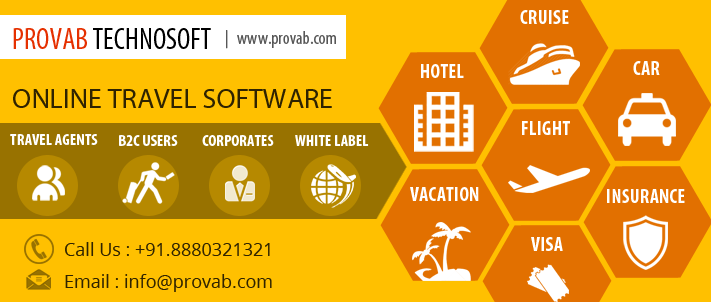Hotel Content Distribution / GDS System Booking Trends in India, USA and UAE
Though travel demand in Europe stalled during the global recession, the pace of technological progress continued unabated. Those hotel and travel companies that seek success must either catch up or risk becoming irrelevant, according to a new report. Such a situation required for new innovation in hotel content distribution and the GDS booking system. Countries like India, USA and UAE are bringing in innovation to sustain the phase of global recession. They have new strategies in place to combat the situation.
For- B2C Travel Portal Development– Get a Quote
http://www.hotelreservationssystem.com/getaprojectquote.html
Hotel GDS System Integration.
There was not one game-changing advancement or trend but rather a confluence of subsequent shifts that are changing the overall environment, he said during a news conference.
Following are the top 10 technology trends that will help hotel and travel companies leverage innovation in the coming year and beyond.
1. New patterns of content challenge distribution
The old model of travel distribution, which saw large intermediaries—such as global distribution systems—aggregate content for booking, is being undermined by new models.
Personal clouds, for instance, allow users to access information anywhere, anytime and on any device. The “Internet of things” enables integration of connectivity and objects that can influence a trip, such as real-time baggage location, weather conditions and homeland security advisories.
Ubiquitous online communications allow even small hotel companies to connect with customers in real-time, allowing them to shop and book without delay. Those same companies, as well as the individuals they serve, also are better able to collect and integrate itinerary data from multiple sources without a GDS.
2. Too much choice means less is better
Giving people too many choices tends to lessen their satisfaction.
Online travel agencies used to provide as many options as possible to exhibit their computing clout. Today the focus is on providing relevant results that target the specific needs and wants of each traveler.
The new traveler, the millennial as we call him today, embraces technology and embraces all devices, and he wants to be shown the right information for what he needs.
Providing such targeted content is even more critical in the mobile arena, where smaller screens require both streamlined offerings and the presentation of those offerings.
3. Social technologies change the shape of travel
Facebook alone has more than 1 billion users, while social media in general reaches 85% of the world’s total Internet users. However, travel companies have yet to unlock the true potential.
4. New efficiencies re-energize the customer experience
As demand for customer service increases, new technological advances will lower the cost of providing it. But travel companies must consider whether a penny saved comes at the risk of a pound of customer preference.
Excessive menu trees or outsourced call centers in foreign countries may cut monetary costs but frustrate customers. Each travel company needs to determine how to use customer service technology in a way that increases customer satisfaction and reduces costs” the report states.
5. Cross-platform data access engages users
As customers realize their dreams of accessing desired digital information on any device or platform, hotel and travel companies are facing nightmares in providing the necessary development and support.
“Cross-platform data access requires travel companies to track the changing user-interface patterns of their customers to provide the appropriate level of service. This will be a continuing process as new technologies evolve and businesses become less restrictive about the devices their employees can use for particular tasks. The suppliers and distributors that support the most user-friendly, convenient interfaces will enjoy increased market share,” according to the report.
6. A cloudy future beats no future at all
Cloud services are becoming more and more sophisticated
Not only do they reduce IT costs and improve time to market, but they allow integration across multiple travel brokerage services, allowing customers to combine hotel stays with airfare or train tickets.
The travel industry has been slow to adapt the services, however.
7. Intermediaries require fresh approaches throughout the travel cycle
Intermediaries, including travel agents and OTAs, must help consumers break through information overload to stay relevant.
“Instead of just selling the best airfare between Point A and Point B, intermediaries will have to provide the best (or lowest-cost) travel experience as a whole. This new imperative requires (sometimes drastic) changes—and investment—in technology, training, customer service time, and service delivery tools. If intermediaries can’t make the needed changes, they will cede shopping to suppliers,” according to the report.
8. Big data makes travel smarter
The effective use of big data can really increase your performance and can really be your competitive differentiator
Instead of focusing on transactions, companies must focus instead on data to better understand how, when, where and why travelers shop and book the way they do.
The report cites efforts by Choice Hotels International, which has set up a master record for every guest and loyalty program member to collect service history, bookings and such on-property selections as food and beverage.
It’s working in the case of Choice. The company’s enhanced loyalty program now delivers $1 out of every $3 in revenue, according to the report.
9. Better travel management through predictive analysis
The travel industry was an early adopter of business intelligence tools, which allowed it to make sense of and informed decisions about the growing amounts of data at its disposal. But as supplier and distribution channels have evolved, the use of business intelligence to manage those channels hasn’t kept up, according to the report.
“Travel companies need to determine their own ‘best practices’ for optimizing content acquisition and distribution,” the report concludes. “Doing so involves acquiring the appropriate tools and establishing business processes and management structures to monitor, analyze and respond to channel business intelligence.”
10. Short-range communications links improve processes
“Most people are acquainted with Bluetooth, but fewer know about radio-frequency identification and near-field communications. All three technologies provide limited-range communications capabilities,” the report states.
Hotel companies have only begun to tap into this potential, utilizing RFIC and NFC for room entry devices payment delivery. Further opportunities exist in the monitoring of visitor patterns, “as this data can lead to improvements in the visitor experience,” according to the report.
Why hotel APIs are a key part of online hotel booking systems today?
To access wide array of online inventory, online hotel booking system is integrated with one or more Hotel APIs. An API is a set of functions, procedures or methods used by computer programs to request services from the OS, software libraries or any other service providers running on the system. Nowadays, there are various Hotel API providers available in the market like Expedia Hotel API, GTA API, Hotelbeds API, Hotelspro API, Travco API, and many more.
RF – HotelNews
PROVAB TECHNOSOFT (http://www.provab.com) is an award winning travel technology company, delivering best in class online travel software and CRS systems to global clients.

